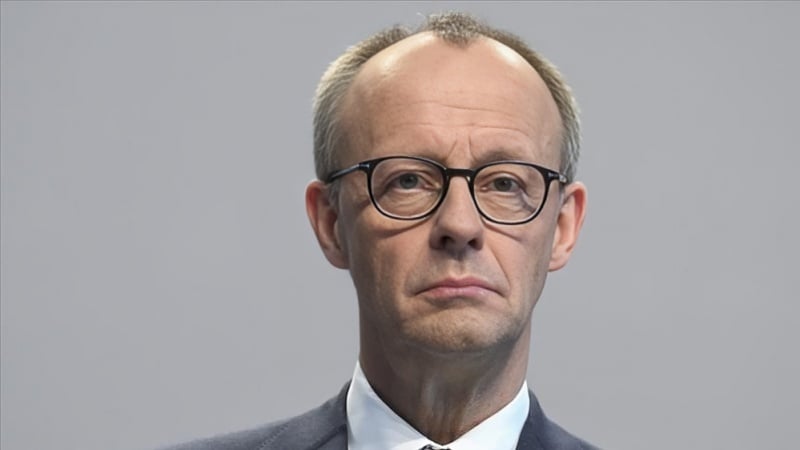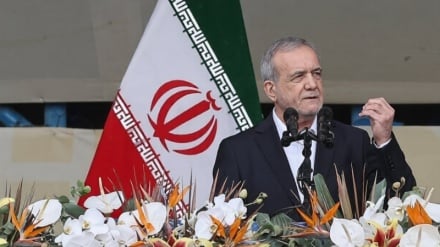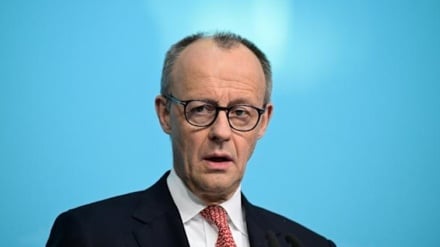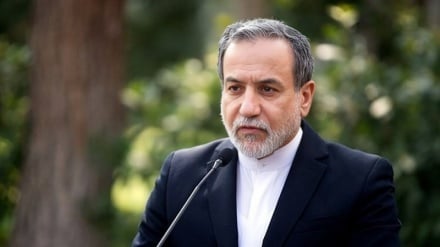Is Europe ready to live in 'grey zone'?
-

German Chancellor Friedrich Merz
Pars Today – The German Chancellor, expressing concern over the increasing number of drone incidents in European skies, has described the continent as being in a "grey zone between war and peace."
According to a report by Pars Today, German Chancellor Friedrich Merz stated: "We are not at war, but we are no longer at peace either." A statement that may seem shocking, but it accurately reflects the current situation in Europe. A situation where the global order based on legal rules has given way to the logic of power and force.
What Europe is trying to impose on Iran through the logic of force—by trampling legal rules, activating the snapback mechanism, and reinstating suspended UN sanctions—has, in another form, confronted Europe itself with the collapse of the Western liberal order and the quagmire of Ukraine.
From the perspective of many think tanks, including the European Council on Foreign Relations (ECFR), Merz's statement is a clear admission of the failure of the post-Cold War dream of a "pacifist Europe." A continent that once saw itself as a model for the liberal order now suddenly finds itself in an arena whose rules are being defined by external actors.
Merz pointed to the flight of unidentified drones over Denmark and the state of Schleswig-Holstein, warning that these developments are concerning. Although these drones are not armed, they are equipped with surveillance technology and have a wingspan of up to eight meters. The prevailing assumption is that they belong to Russia.
The German Chancellor acknowledged that countering such a threat is not simple, as shooting down unarmed drones could lead to unintended political and military consequences. This is precisely the dilemma of hybrid warfare: the enemy imposes maximum doubt and psychological pressure on the opponent at the lowest cost.
On the political and economic front, Europe is simultaneously facing two crises. First, the ongoing war in Ukraine, which shows neither a military defeat for Russia nor the economic exhaustion of Kyiv in the short-term outlook. Second, the debate over using frozen Russian assets to finance Ukraine. German Chancellor Merz has proposed providing approximately 140 billion euros in loans to Kyiv through Euroclear.
This proposal has been met with approval in Brussels and Washington, but also with concerns. Many experts warn that such a move could weaken the Euro's position in the global financial system and set a dangerous precedent for the seizure of national assets. France and several other European partners are also viewing the matter cautiously.
On the other hand, internal divisions among European countries are increasing. Poland and the Baltic states are calling for harsher responses against Russia, while some other EU members are concerned about the economic and social consequences of such a policy. These very disagreements are a weakness that Moscow is cleverly exploiting to weaken Western cohesion.
When these factors are considered together, a perilous future for Europe emerges: a continent stuck in the quagmire of a war of attrition that it can neither end nor escape the consequences of. From this perspective, Merz's words are not merely a description, but a serious warning. Europe must prepare for a reality in which drone operations, cyberattacks, economic pressures, and political threats will become part of everyday life.
The outlook for the Ukraine war is also not promising. There are no signs of Russia's imminent collapse, and the costs of supporting Ukraine continue to rise for Europe. Under such circumstances, the most critical challenge for European leaders is maintaining internal cohesion, managing the energy and food crises, and preventing the erosion of the continent's political and economic power.
With a simple statement, Merz laid bare Europe's crisis: the continent has entered a new era. An era where peace can no longer be taken for granted, and war, even if not officially declared, is ongoing in various forms. The central question now is how Europe intends to endure in this "grey zone"—by increasing its defensive capabilities, redefining its transatlantic alliances, or finding a way to end a war that puts a heavier toll on its nations with each passing day.


